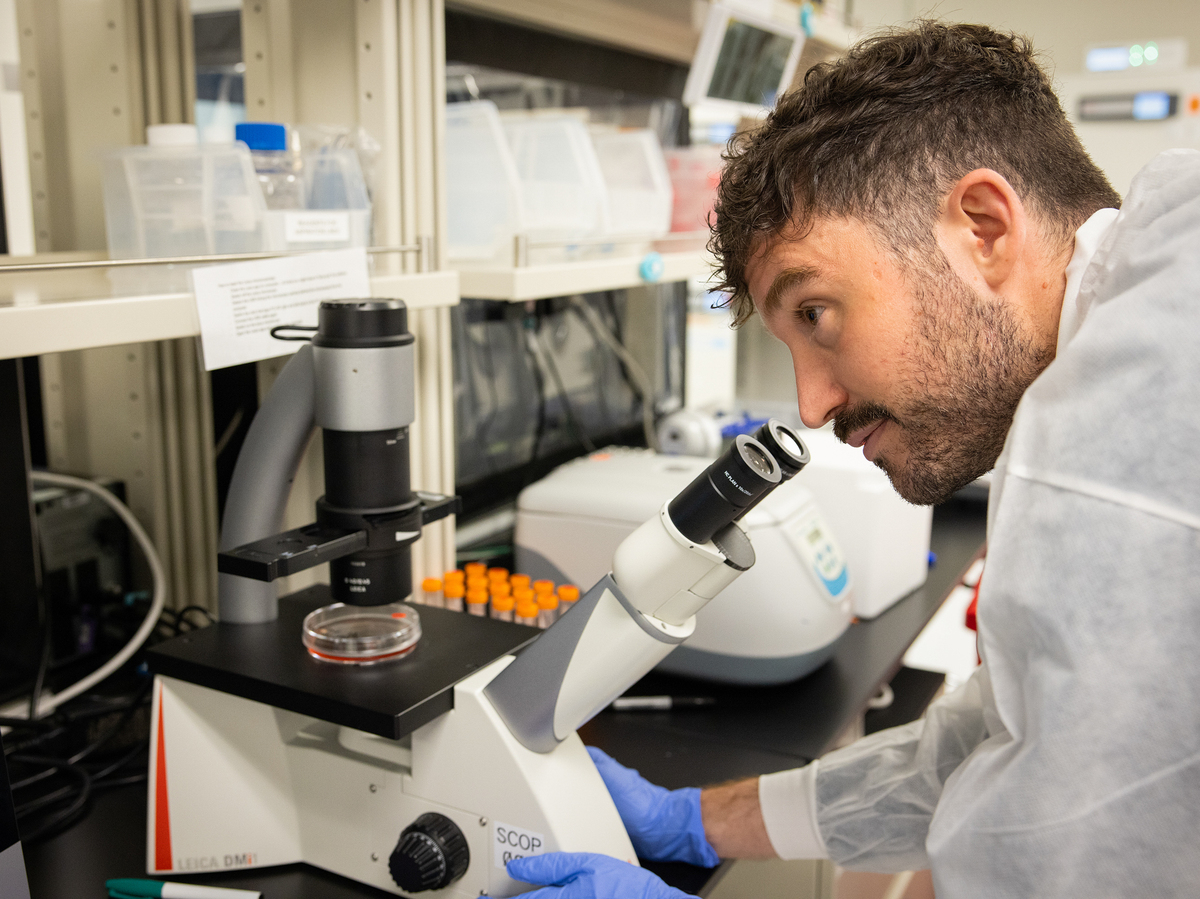
Conception CSO Pablo Hurtado shows very early primitive germ cells under a microscope at the company's office in Berkeley, Calif., on Tuesday, June 6, 2023. Conception is racing to accelerate and commercialize in-vitro gametogenesis, or IVG. Laura Morton/Freelance for NPR hide caption

Conception CSO Pablo Hurtado shows very early primitive germ cells under a microscope at the company's office in Berkeley, Calif., on Tuesday, June 6, 2023. Conception is racing to accelerate and commercialize in-vitro gametogenesis, or IVG.
Laura Morton/Freelance for NPROne of the most cutting-edge and controversial fields of biomedical research right now is the quest to create eggs and sperm in the lab for anyone with their own DNA. And now, private companies have jumped into the race to revolutionize the way humans reproduce.
In vitro gametogenesis, or IVG, would enable infertile women and men to have children with their own DNA instead of genes from the sperm and eggs or donors. It would also provide queer couples the opportunity to have children biologically related to both partners.
NPR health correspondent Rob Stein reports on the excitement and concerns this new technology has fueled.
Email us at
This episode was produced by Mia Venkat and Matt Ozug. It was edited by Adam Raney and Scott Hensley. Our executive producer is Sami Yenigun.

 Live Radio
Live Radio